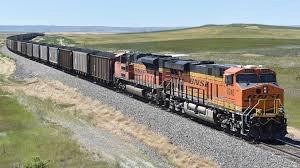 Unless their is resolution of contract talks between the Brotherhood of Locomotive Engineers and Trainmen and other unions representing workers and their employers, the rail carriers, an extensive strike may disrupt traffic in mid-September. Following White House intervention, a Presidential Emergency Board was convened on September 16th in an attempt to avert a strike. Workers requested a 31 percent raise spread over five years but the carriers offered 17 percent. The Emergency Board recommended a 24 percent wage increase, representing a compromise that should be acceptable to both parties. If workers strike on September 16th, Congress can pass emergency legislation prohibiting either a lockout or strike that would mandate continued operations until an agreement is reached. It is understood that some progress has been made with a few unions and a strike if it occurs might not be too disruptive over a short period.
Unless their is resolution of contract talks between the Brotherhood of Locomotive Engineers and Trainmen and other unions representing workers and their employers, the rail carriers, an extensive strike may disrupt traffic in mid-September. Following White House intervention, a Presidential Emergency Board was convened on September 16th in an attempt to avert a strike. Workers requested a 31 percent raise spread over five years but the carriers offered 17 percent. The Emergency Board recommended a 24 percent wage increase, representing a compromise that should be acceptable to both parties. If workers strike on September 16th, Congress can pass emergency legislation prohibiting either a lockout or strike that would mandate continued operations until an agreement is reached. It is understood that some progress has been made with a few unions and a strike if it occurs might not be too disruptive over a short period.
The rail system along with other components of the U.S. economy has not recovered from COVID and carriers are attempting to recruit and train personnel. As with the airline industry, delays and deterioration in service has affected rail deliveries on which the agricultural sector depends. The grain industries are especially impacted according to Max Fisher, the Chief Economist of the National Grain and Feed Association.
Workers point to consolidation among carriers with ownership by hedge funds and financial groups concerned over return on investment. Workers maintain that profit has taken precedence over service and safety. A reduction in the number of carriers and their ownership is a matter of public record, as is the incidence rate of accidents and delays. Recently, Foster Farms had to resort to legal action to enforce their carrier to grant priority to shipments of corn required to feed flocks in West coast states.